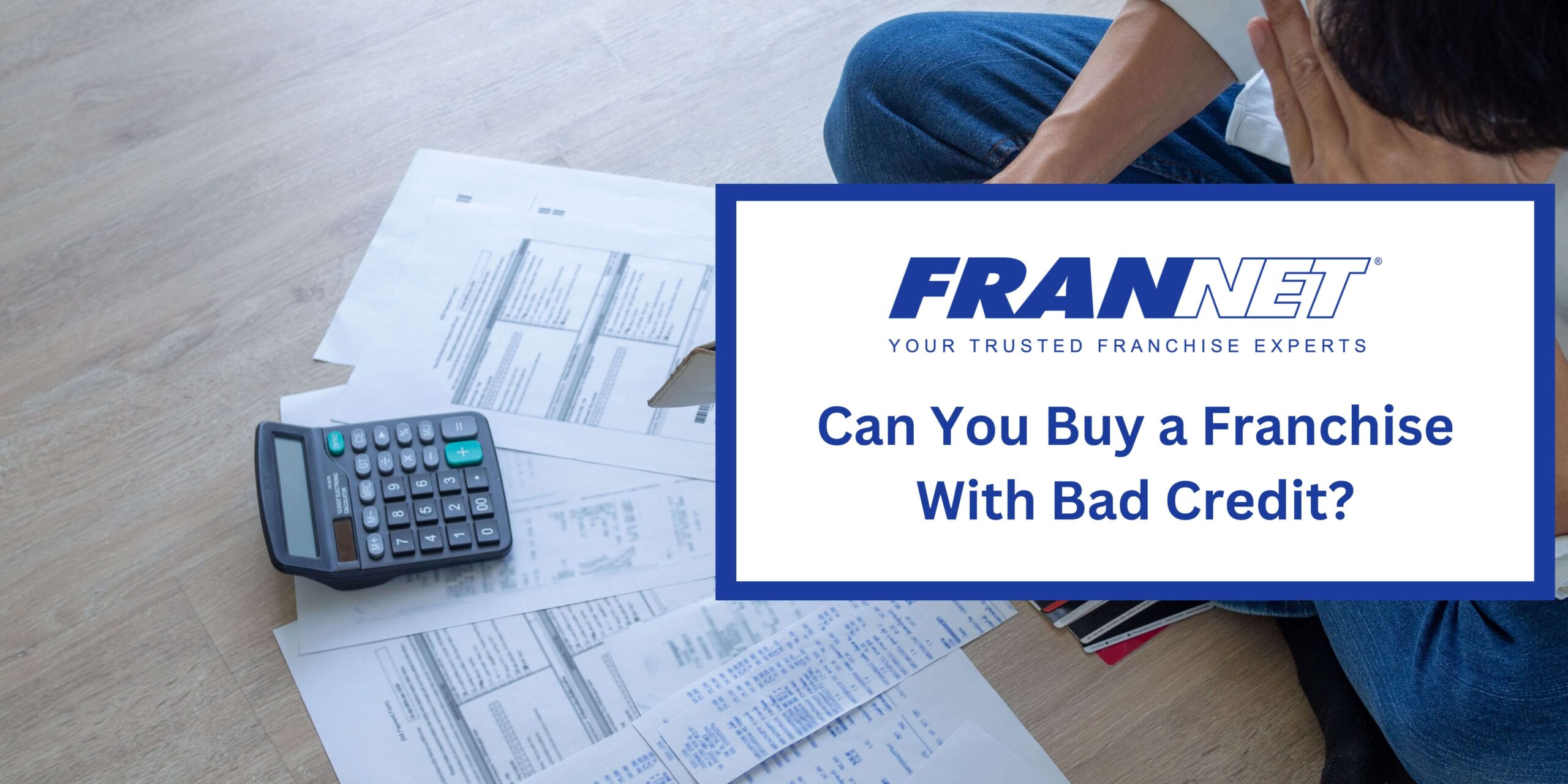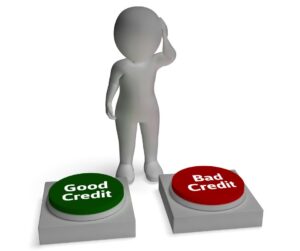
If you’re worried that your credit score might be a barrier to owning a franchise, this article is for you.
A credit score is a number between 300-850 that determines your creditworthiness, which “plays a key role in a lender’s decision to offer credit and for what terms” (Investopedia).
Your credit score takes into account your credit history including:
- Number of accounts
- Types of loans
- Total levels of debt
- Repayment history
- Length of credit history
It’s true that having good credit is an advantage to anyone applying for a business loan. However, having bad credit doesn’t necessarily mean you are bad with money or unable to manage a business. For some, there are unavoidable circumstances that damage their credit score.
Is it possible to buy a franchise with little money or bad credit? In short, the answer is yes. However, it will be more difficult so there are a few things to consider if this is the position you find yourself.
7 Things to Consider When Starting a Business With Bad Credit
1 – Your Loan Eligibility
A lender considers various factors when deciding whether an individual is eligible for a business loan including: how much capital you have, your collateral, your experience in the industry, your credit history, and more. A bad credit score will certainly impact your eligibility, but not all hope is lost.
If you’re in this situation, then your best chance is to obtain a franchise loan through the U.S. Small Business Administration (SBA). An SBA loan is not exactly a loan, rather it provides the backing that a small business needs to acquire the loan from a private lender. A lender is more likely to extend a loan if it is guaranteed by the federal government, even if it’s for someone who doesn’t meet every standard. While the SBA provides a guarantee to the lender, the borrower is still responsible for repaying the entire loan amount.
2 – Leveraging Your Assets
If getting a loan is not an option for you, then you might need to get creative and think of ways you can leverage your own assets to finance your business venture. This means using your assets as collateral to obtain financing. Examples of assets you can leverage include:
- Real estate
- Stocks or investments
- Equipment and inventory (if you previously owned a business)
- Car
- Savings
Leveraging your assets to buy a business comes with the risk of losing them so it’s crucial to seek financial advice to assess the potential benefits and risks. Reach out to FranNet for guidance as you weigh your options.
3 – Alternative Funding Sources
If you don’t qualify for a traditional loan, then you could look into community development corporations. CDCs are “501(c)(3) non-profit organizations that are created to support and revitalize communities, especially those that are impoverished or struggling” (NACEDA). In some cases, CDCs will lend money to a local small business if it’s likely to bring revenue and jobs to the community.
A few other options to look into include: establishing partners or investors, finding someone who can co-sign, and applying for a grant (although this is uncommon).
4 – Evaluate the Interest Rate
If an individual with a bad credit score is able to obtain a business loan, then it might come with a higher interest rate. This will mean a higher monthly payment, so it’s important to factor it into the business’s projected costs and revenue. Despite the higher monthly costs, it still could be a profitable business investment.
5 – Establish a Rock Solid Business Plan
If you’re applying for a loan through a bank or the SBA, then you will need to provide a detailed business plan. Having a thorough and well-thought-out business plan does two things for you:
- Makes you more attractive to lenders – A solid business plan will show lenders that you have what it takes to run a successful business. It can make all the difference as you try to secure financing.
- Prepares your business to succeed – If you have already thought through every aspect of your business and made an effective plan for running it, then your path to success is more clear. You will be able to make informed decisions and keep the business on the right trajectory.
6 – See if Franchisor Financing is an Option
Some franchisors will offer in-house financing to cover the franchise fee, equipment, and other start-up costs. You would then make loan payments along with your monthly royalty fees. Keep in mind that not all franchisors provide this opportunity, so it’s important to do your research as you evaluate your options.
7 – Work to Improve Your Credit Score
 “How long it takes to repair bad credit depends on your individual circumstances. Your current scores, the factors that are affecting your scores and more all go into how long it takes to repair bad credit…If bankruptcy or delinquent payments are the reason for lower scores, it might take a little longer to repair. But most things won’t impact your scores forever, and the effects of negative factors may lessen over time” (CapitalOne).
“How long it takes to repair bad credit depends on your individual circumstances. Your current scores, the factors that are affecting your scores and more all go into how long it takes to repair bad credit…If bankruptcy or delinquent payments are the reason for lower scores, it might take a little longer to repair. But most things won’t impact your scores forever, and the effects of negative factors may lessen over time” (CapitalOne).
Having a low credit score can certainly be a hurdle to business ownership. Thankfully, it is possible to improve it over time. You may have to wait a few years before securing a business loan, but during this time you can take proactive measures to prepare yourself. You can start with paying off your debts and managing your credit wisely. Furthermore, getting a job that gives you managerial experience in the industry will help you when you are ready to apply for a business loan.
The Next Step Is Free to You
Are you interested in franchise ownership but worried that your credit score might be too low? FranNet can help you evaluate your options. Our expert franchise consultants will seek to understand your specific circumstances and provide you with the guidance and resources you need. We will help you understand your funding options and when you’re financially ready, we can match you with the right brand. All of this comes at no cost to you, so what are you waiting for? Schedule your free consultation today!
Click here to check out our Funding Options Calculator!